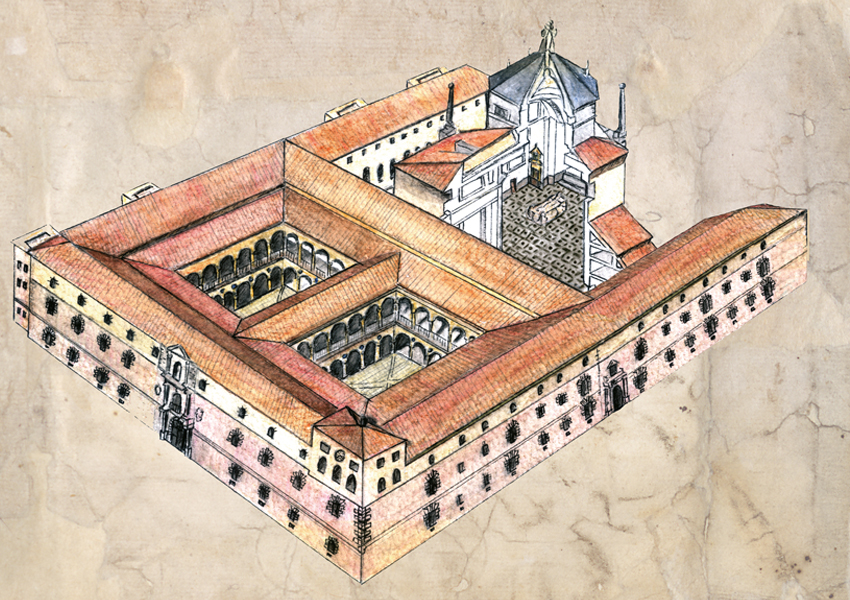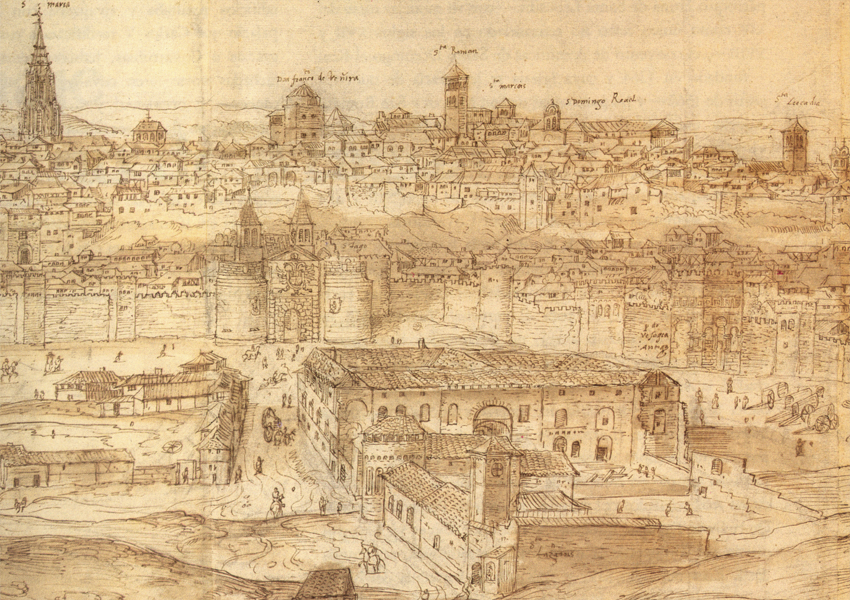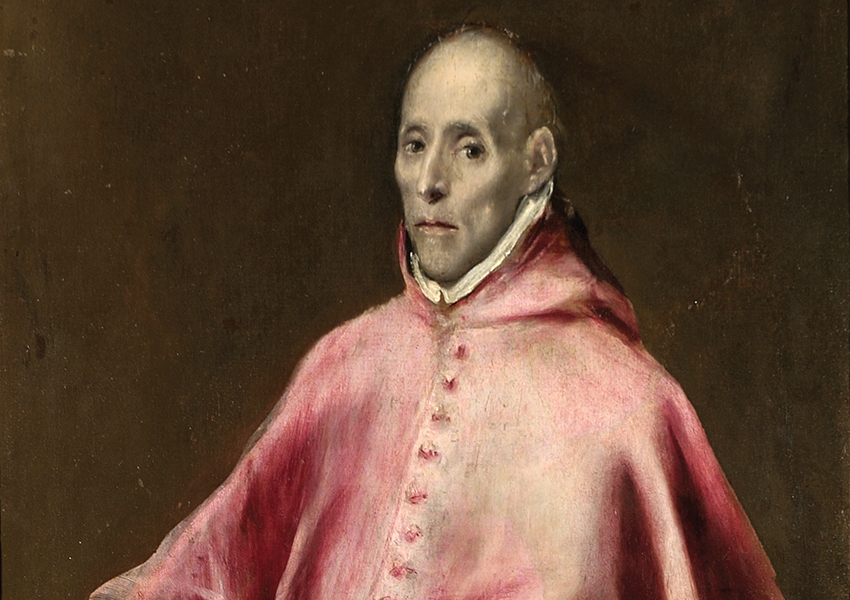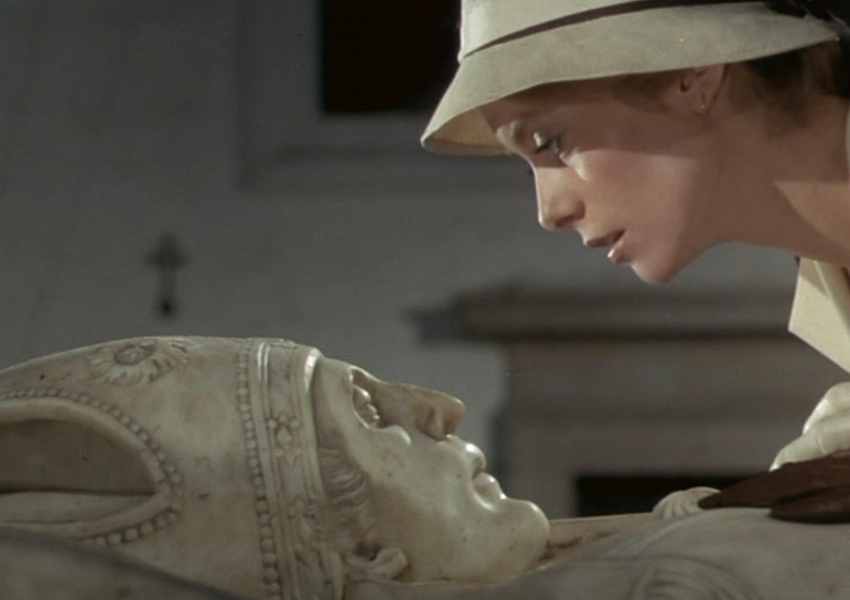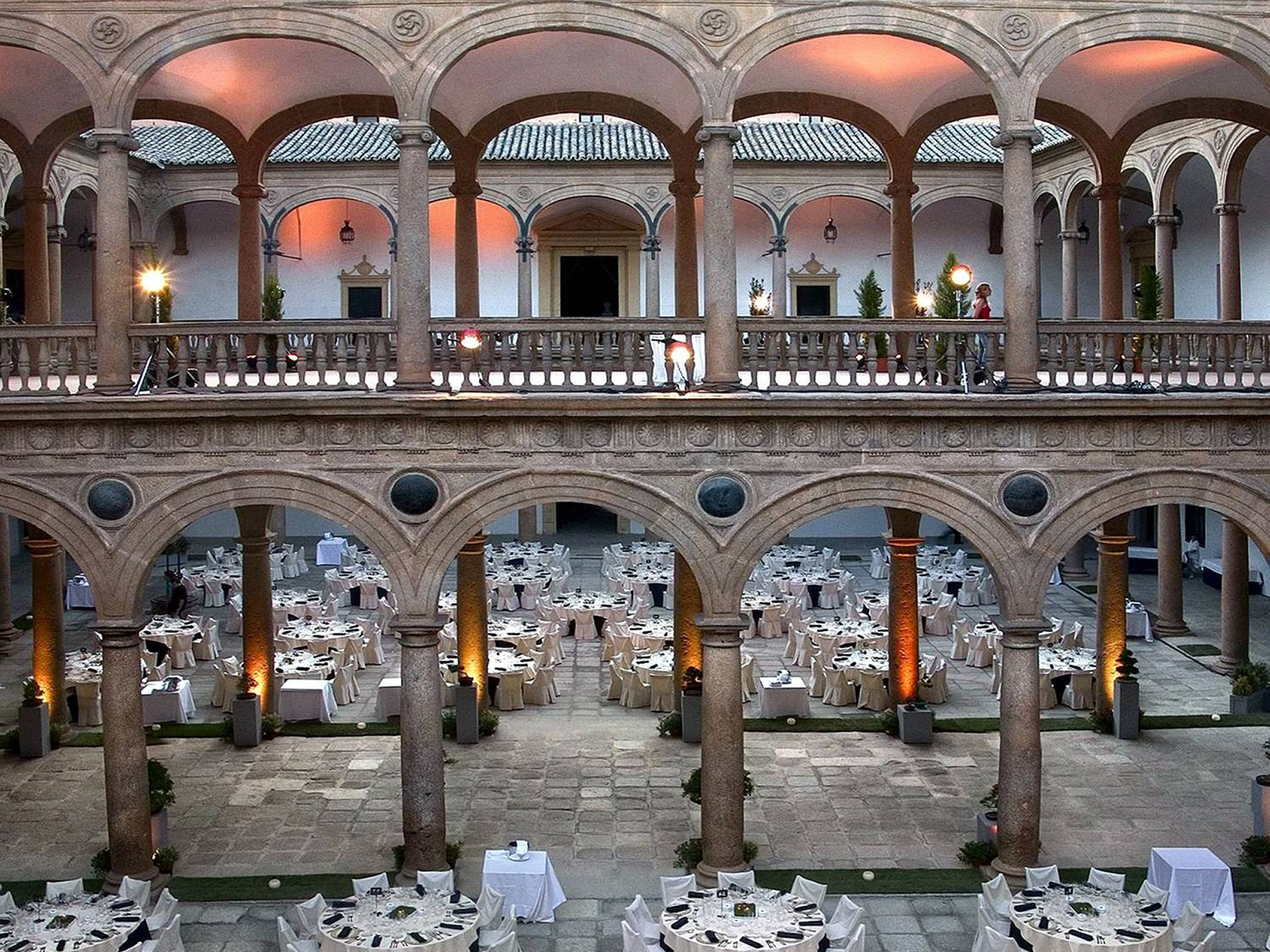Hoy, 10 de May de 2025
The Hospital is open from 10am to 6pm.
Tavera Hospital
Toledo
In 1541, at the same time as the birth in Crete of the painter Domenikos Theotokopoulosin Toledo, the master builder of the Primate Cathedral, Alonso de CovarrubiasThe construction of this great building of Renaissance classicism began, with a dual function: hospital and pantheon of its founder. Its construction opened up the programme of architectural and urban renewal that the circle of humanists who surrounded Emperor Charles V planned for the city. to adapt the image of Toledo to its role as an imperial capital and that El Greco Years later, as soon as the work on the pantheon chapel had been completed, he would depict it in his famous "View of Toledo", in which he places the Hospital in the foreground, floating on a cloud and inverting its orientation, in whose ornamentation he took part.

